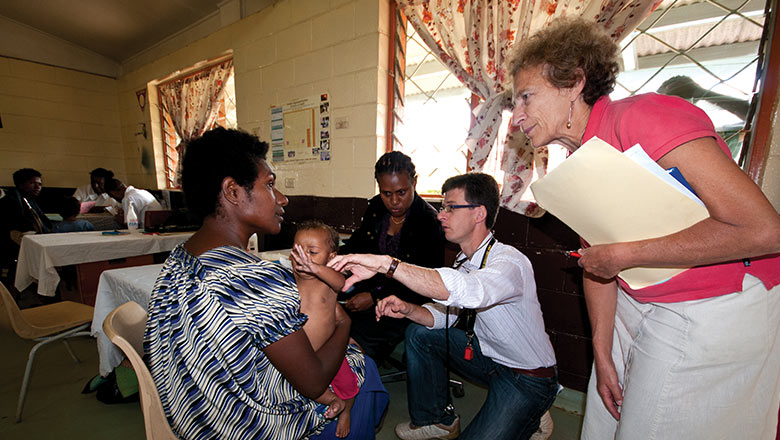Search
Research
Influenza vaccine effectiveness against laboratory-confirmed influenza in healthy children aged 6-59 months:The Western Australian Influenza Vaccine Effectiveness study commenced in 2008 to evaluate a new program to provide free influenza vaccine to all children...
Research
Vaccine Effectiveness Against Laboratory-confirmed Influenza in Healthy Young Children A Case-Control StudyThe Western Australian Influenza Vaccine Effectiveness study commenced in 2008 to evaluate a new program to provide free influenza vaccine to all children...
Research
Assessing the protective effect of influenza vaccine against laboratory confirmed influenza in hospitalised children aged 6-59 monthsInfluenza vaccine was offered to all children aged 6-59 months resident in Western Australia in 2008, and we wished to evaluate the effectiveness of this immunisation programme.

News & Events
Warm Welcome for the Neonatal Infection and Immunity TeamClinical Professor Tobias Strunk, Dr Andrew Currie and their Neonatal Infection and Immunity Team have become the newest members of the Wesfarmers Centre of Vaccines and Infectious Diseases.
Research
Updated model of group A Streptococcus M proteins based on a comprehensive worldwide studyGroup A Streptococcus (GAS) M protein is an important virulence factor and potential vaccine antigen, and constitutes the basis for strain typing (emm-typing).
Research
Group A streptococcal vaccines: Paving a path for accelerated developmentVaccine prevention of GAS infections and their immunological complications has been a goal of researchers for decades.
Research
Progress toward a global Group A streptococcal vaccineThe desire for an effective vaccine arises from the large burden of disease caused by the bacterium, particularly rheumatic fever and rheumatic heart disease.

News & Events
Researchers share their expertise with the community in CockburnResearchers from the Wesfarmers Centre of Vaccines and Infectious Diseases at The Kids Research Institute Australia have shared their expertise with the community in Cockburn, covering topics ranging from respiratory disease in babies to recurring ear infections in kids.
Research
Comorbidities and confusion: addressing COVID-19 vaccine access and information challengesEarly in the coronavirus disease 2019 (COVID-19) pandemic, evidence emerged that individuals with chronic and immunocompromising conditions faced increased risk of severe infection, including death. The Australian Government and public health authorities prioritised these citizens' access to vaccines, including them in phase 1b of the rollout from 22 March 2021.

News & Events
Collaborating to prevent killer diseases in PNGFor more than a decade, The Kids Research Institute Australia and Papua New Guinea Institute of Medical Research have been fighting against killer infectious diseases.
